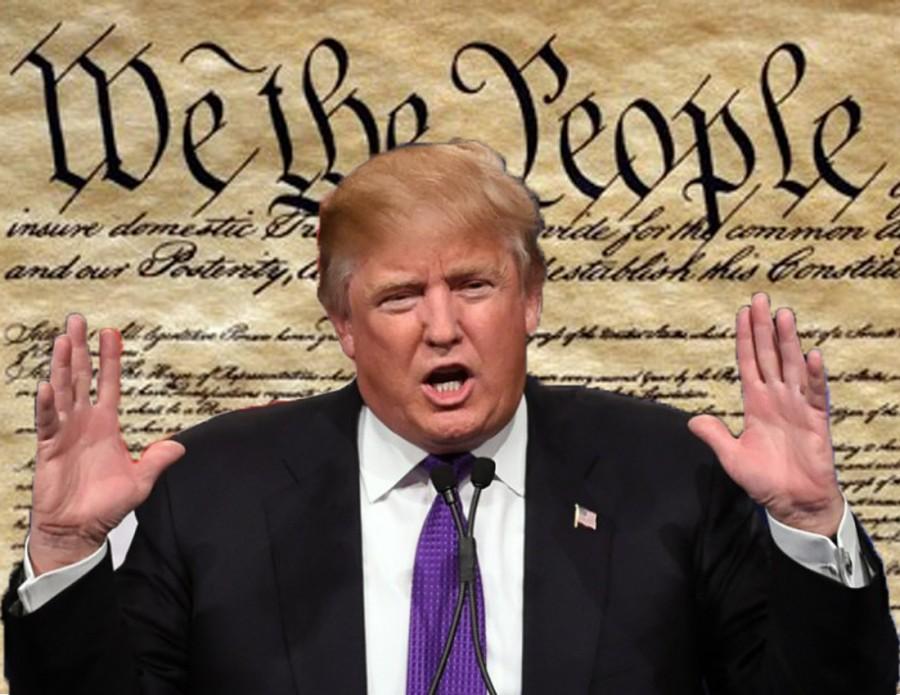Power of the press
Journalism has a strong influence on American society; it informs the people, reports on public figures and spreads editorial ideas, among many other purposes. Through the First Amendment’s protection of free press, news organizations and journalists can write about current events and editorial ideas freely.
However, in recent political news, Republican candidate Donald Trump claimed to open libel laws if elected president, which would limit the media’s First Amendment rights and influence on the people.
“I‘m gonna open up our libel laws so when they write purposely negative and horrible and false articles, we can sue them and win lots of money so that, when the New York Times writes a hit piece which is a total disgrace or when the Washington Post, which is there for other reasons, writes a hit piece, we can sue them and win money instead of having no chance of winning because they’re totally protected,” Trump said at a rally in Texas on Feb. 26, followed by shouts of praise and applause from the crowd.
News organizations are, by law, already not allowed to publish libel, or written lies. In short, if there is proof that a false and malicious statement about a person or group was published in a newspaper, magazine or other written medium as factual, a plaintiff can sue them for libel under current law. Precedents, like the Times v. Sullivan case in 1964 (which concluded that a statement must be intentionally, but not accidentally, malicious to sue for libel), also led to today’s libel laws.
However, opinionated and negative articles are protected under the First Amendment. In other words, while writing and publishing lies is unprotected because of libel laws, writing negative, factual articles is protected press. News organizations are absolutely free to write and publish opinionated and negative editorials or articles as they wish without being sued.
This being said, Trump’s claim to open libel laws to sue the press for “negative and horrible and false articles” is not only aimed to limit the First Amendment freedoms for journalists, but is going against many set precedents that made the state-level libel laws what they are today.



